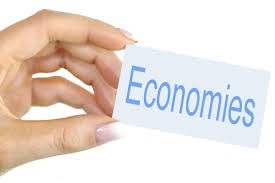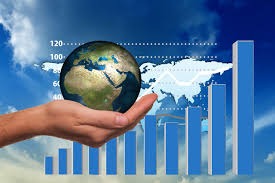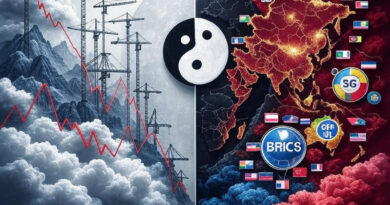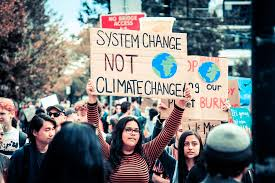Emerging Economies: The New Architects of a Changing World
Once, the global economy felt like an elite club. A few powerful countries made the rules, ran the boardrooms, and called the shots. But now, a new crowd is entering the room—and they’re not just listening. They’re shaping the conversation.This isn’t a quiet shift. It’s a loud one. And it’s redefining what power looks like in the 21st century.

Beyond the Buzzword
We toss around terms like “emerging economy” all the time, but what does it actually mean? It’s not a straight line. These are countries that haven’t reached full industrial or economic maturity yet—but they’re not starting from zero either. Many are already driving global trade, investing in tech, and creating new middle classes.
Their stories? Far from perfect. Corruption, poverty, pollution, and inequality are still there. But so is ambition. So is growth. So is change.
Growth Where It Matters
You want to see where the world’s energy is? Look at where new factories are being built. Where young people are learning to code. Where roads, schools, and hospitals are going up. That’s where things are happening. And a lot of that is outside the borders of traditional powers.
India’s growing digital sector is becoming a tech backbone not just for Asia but for the world. Brazil’s renewable energy experiments are setting new standards. Nigeria’s music and film industries are booming—culturally exporting far beyond West Africa.
These aren’t just economic stats. They’re signs of a shift in gravity. The kind that rewrites maps—not with new borders, but with new centers of influence.
Innovation Under Pressure
It’s easy to assume that innovation happens in shiny glass buildings with expensive labs and massive budgets. But some of the most impactful ideas come from places with tight resources and urgent needs.
In Kenya, mobile banking systems transformed how money moves—long before similar tools took hold in wealthier countries. In Bangladesh, community-based health solutions reached rural families before large systems could. In Vietnam, digital startups are finding smarter, cheaper ways to manage logistics and delivery.
Emerging economies often don’t have the luxury of slow, traditional models. That’s what makes their solutions quicker, leaner, more direct. Innovation, for them, is less about prestige—and more about necessity.
The Middle Class Is Rising
Maybe the most underestimated force in this story? Everyday people. Millions of them.
In emerging economies, more people are working stable jobs, buying homes, starting businesses, and sending their kids to school. They’re becoming consumers—of phones, bikes, insurance, streaming services, online courses. They’re also becoming voters, activists, and thinkers who demand more from their governments and leaders.
This rising middle class isn’t just reshaping local life—it’s influencing global markets. Big companies see it. That’s why so many are shifting focus, setting up shop, or tailoring products specifically for these new buyers.
But growth brings expectations. People want more from healthcare, education, and public infrastructure. They want systems that work, not just promises. That pressure is real—and it’s reshaping politics across regions.
Not Just Playing Along—Making New Rules
Emerging economies aren’t just participating in global systems. Many are challenging them.
Institutions like BRICS are starting to rival traditional power structures like the G7. Countries are talking about creating alternative currencies, launching new development banks, and building trade networks that don’t rely on older models.
And it’s not just talk. These moves signal something deeper: a desire for fairness. For a voice. For space to grow without being boxed into someone else’s system.
Global problems—climate, pandemics, cyber threats—need global solutions. Emerging economies want in on those solutions. Not just as footnotes or afterthoughts, but as partners.
Climate: The Double Bind
No conversation about growth today can ignore the planet.
Emerging economies face a hard truth. They want to grow, but growth usually comes with environmental cost. Wealthy countries had centuries to build their economies—often by polluting freely. Now, those same countries are telling newer ones to cut back.
It’s complicated.
Many emerging economies are already feeling the effects of climate change—floods, droughts, storms—yet they have fewer resources to fight it. Still, many are stepping up.
Indonesia is pushing for cleaner energy. Chile is investing in lithium for electric batteries. India is rolling out huge solar initiatives. They’re trying to find a path that allows growth without destruction. But they can’t do it alone. They need support—real, honest, long-term support.
Challenges? Still Plenty
The rise of emerging economies isn’t a straight line. There are potholes everywhere.
Some face political instability. Others struggle with debt. Many deal with underfunded schools, slow internet, or healthcare gaps. Some regions are still shaped by colonization’s long shadow. Corruption, brain drain, and regional conflict don’t help either.
Still, momentum is on their side. Because even with all these issues, many emerging economies are moving forward anyway. That says something about their resilience.
The Bigger Picture
This isn’t just about economics. It’s about identity. Power. Perspective.
The more emerging economies grow, the more the global narrative shifts. No longer dominated by a few voices, the conversation becomes richer, messier, more honest. That’s a good thing.
It means new stories get told. New solutions get tried. And new ways of thinking about work, family, progress, and justice get a seat at the table.
The Takeaway
Emerging economies aren’t waiting to be noticed. They’re already in motion—messy, dynamic, unpredictable, and full of potential.
They’re building new futures, not just for themselves, but for the rest of us too.
And whether the old powers are ready or not, that future is already knocking.





Wow what a great lesson